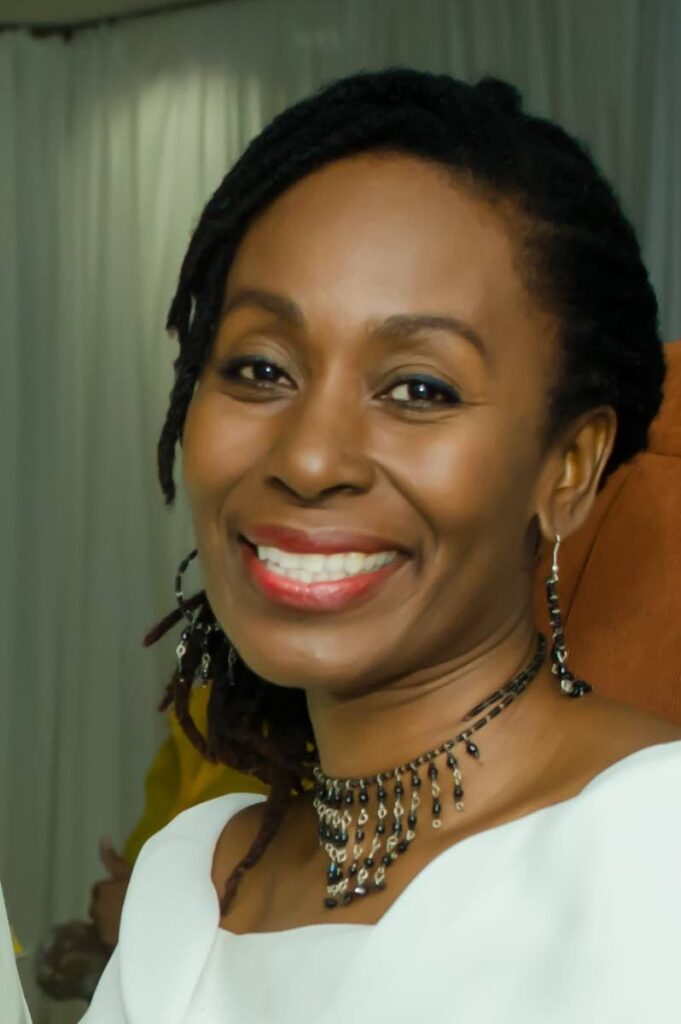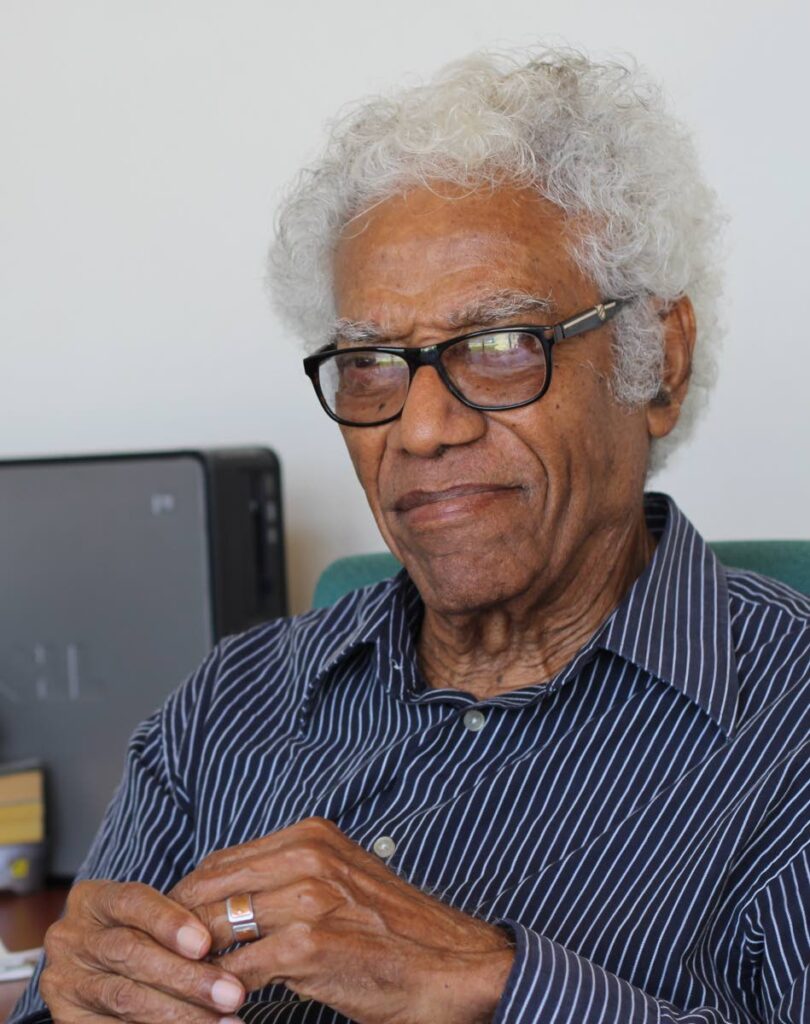The other George Lamming

Culture Matters
DARA E HEALY
Who is this Michael Jackson person?
– George Lamming, around 1982/1983
MY SISTERS and I were stunned. Well, mortified would be a better word. It was impossible to comprehend that Uncle George had no idea who Michael Jackson was. You see, for us, his lapse in knowledge was extremely grave. Thriller, the album, had forever transformed the entertainment industry. Not long after its release it came to be known as “the biggest-selling album of all time.” Jackson was a pop-culture phenomenon. From film-like music videos to dancing zombies and the moonwalk, it was not possible to be alive in the early 1980s and not know about Michael Jackson. Unless you were George Lamming, of course.
We set about to help him understand the magnitude of his question. The Thriller record came out (yes, the vinyl version), the living room was cleared and I moonwalked and gyrated while my sisters sang back-up and performed their routine.
He sat on the couch taking it all in with a benevolent, or perhaps confused, look on his face. After we finished our performance, satisfied that we had saved him from his outdated look on life, he said in his BBC English accent, “This is a very curious family indeed.”

I remember him in vignettes, short films that play in my mind. I studied in Barbados for a while, so I would go to Bathsheba and relax with him where he lived, in a modest hotel by the sea. His room was small and Dickensian, filled to bursting with books and papers and a typewriter, quite literally in the centre of it all. He once told an interviewer that he could not live without books, that they were his oxygen.
Sitting in the wild beauty of the Bajan east coast, we would chat about school, my dreams, politics – everything and nothing. He was there through all the various phases of my life and eventually he became Uncle George to the next generation of children in our family.
His first novel, In the Castle of My Skin, offered a portal through which the rest of the world could understand the impact of colonialism and enslavement on Caribbean people. Regional integration was integral to much of his scholarship.
“Real sovereignty is the capacity to take action that is exempt from the inclusion of external forces. We cannot reach that unless we find a way towards the integration of all these (Caribbean) territories…The curriculum is key in this transformation. Every five-. six-, seven-year-old should be trilingual, learning English, French and Spanish.”
As I got older, I witnessed how many people were terrified of his intellect. It was not that he was unkind, it was just that they were not ready. After all, he shared the same intellectual space with distinguished global thinkers like Aime Cesaire, Franz Fanon, Cheik Anta Diop and CLR James.
Still, he had the ability to explain a complex idea using the exact words required for it to make sense.
“The persistence (of concepts like good hair and light skin) has to do with the extraordinary power which Europe and by extension America…have had in shaping the images of who you are and what you should be. This legacy is very deep…Economic power allowed them to sustain this dominance of image.”
I think he had a fiercely African world view. I am sure he would have been disappointed, though not surprised, by the current unsophisticated debate in our society about African names.
His brilliance was flavoured by a mischievous sense of humour. He would chuckle, shoulders shaking, eyes darting behind his glasses. He saw my portrait in a mall in Bridgetown, one of the prizes for a competition I won.
According to Uncle George, the man behind the counter saw him looking at my photo.
“You know she?” he asked.
“Yes, I know she,” replied Uncle George in flawless Bajan parlance.
George was completely tickled by the fact that the man in the mall had no clue who he was, but was absolutely impressed by the fact that Uncle George knew who I was.
More vignettes. Him sitting on a child-sized chair watching me tell stories. Having dinner with generations of our family, revelling as the children grew older, welcoming him into our expanding circle.
My tears are for the piece of me that is now missing. We were privileged to have his love and support, to have known the George Lamming that few ever experienced.
Love and moonwalks, Uncle George, always.
Dara E Healy is a performance artist and founder of the Indigenous Creative Arts Network – ICAN


Comments
"The other George Lamming"